#War on drugs
Explore tagged Tumblr posts
Text
hmm which of these 4 addicting substances are associated with minority use?
wild how we have a medication that is super effective at treating a debilitating disability but its controlled to hell and back because What If Someone Takes It For Fun like i have an idea who gives a shit
#us politics#war on drugs#racism#50:1 sentencing disparity#why do you think balisongs are banned by knife statutes#why do you think menthol cigarettes specifically are being targeted for bans
28K notes
·
View notes
Text
reminder that adhd medication isn't a luxury or preference, but a lifesaving medication. a 10 year long study in the usa showed that, when properly medicated, the rate of car crashes people with adhd get into goes down significantly--men's rate drops by 38%, and women's by 42%. the med shortage, denial of meds by doctors, rising prices, and the "war on drugs" has killed--with such a car dependent society, not driving frequently isn't an option, which means we need better healthcare and need it now.
https://shorturl.at/8VD8B
edit because i forgot to explain: short link is to an article by the washington post, it should be free to read
#adhd#disability#medication#mental health#war on drugs#adhd awareness#in the least shocking turn of events the government trying to imprison people fucks everyone over#ableism#disability rights#pls reblog to raise awareness#please check the most recent version I reblogged for dementia info!!!
30K notes
·
View notes
Text
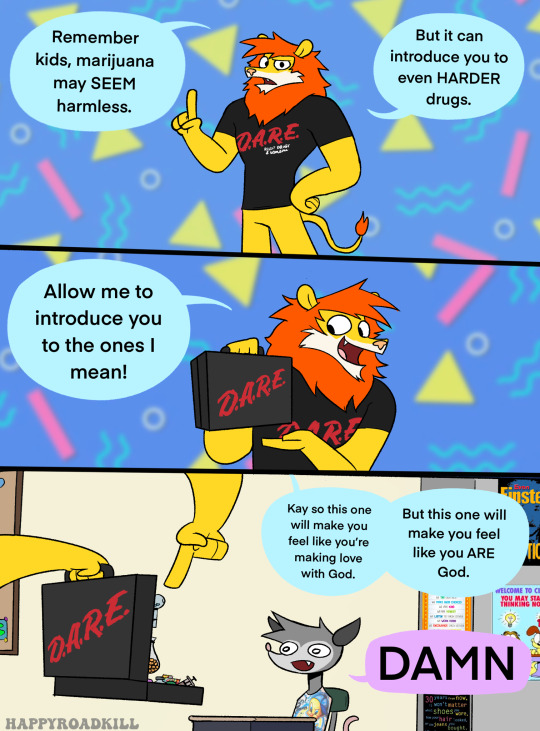
how this guy lost the war on drugs is a mystery to me
25K notes
·
View notes
Text
Expert agencies and elected legislatures

If you'd like an essay-formatted version of this post to read or share, here's a link to it on pluralistic.net, my surveillance-free, ad-free, tracker-free blog:
https://pluralistic.net/2024/11/21/policy-based-evidence/#decisions-decisions

Since Trump hijacked the Supreme Court, his backers have achieved many of their policy priorities: legalizing bribery, formalizing forced birth, and – with the Loper Bright case, neutering the expert agencies that regulate business:
https://jacobin.com/2024/07/scotus-decisions-chevron-immunity-loper
What the Supreme Court began, Elon Musk and Vivek Ramaswamy are now poised to finish, through the "Department of Government Efficiency," a fake agency whose acronym ("DOGE") continues Musk's long-running cryptocurrency memecoin pump-and-dump. The new department is absurd – imagine a department devoted to "efficiency" with two co-equal leaders who are both famously incapable of getting along with anyone – but that doesn't make it any less dangerous.
Expert agencies are often all that stands between us and extreme misadventure, even death. The modern world is full of modern questions, the kinds of questions that require a high degree of expert knowledge to answer, but also the kinds of questions whose answers you'd better get right.
You're not stupid, nor are you foolish. You could go and learn everything you need to know to evaluate the firmware on your antilock brakes and decide whether to trust them. You could figure out how to assess the Common Core curriculum for pedagogical soundness. You could learn the material science needed to evaluate the soundness of the joists that hold the roof up over your head. You could acquire the biology and chemistry chops to decide whether you want to trust produce that's been treated with Monsanto's Roundup pesticides. You could do the same for cell biology, virology, and epidemiology and decide whether to wear a mask and/or get an MRNA vaccine and/or buy a HEPA filter.
You could do any of these. You might even be able to do two or three of them. But you can't do all of them, and that list is just a small slice of all the highly technical questions that stand between you and misery or an early grave. Practically speaking, you aren't going to develop your own robust meatpacking hygiene standards, nor your own water treatment program, nor your own Boeing 737 MAX inspection protocol.
Markets don't solve this either. If they did, we wouldn't have to worry about chunks of Boeing jets falling on our heads. The reason we have agencies like the FDA (and enabling legislation like the Pure Food and Drug Act) is that markets failed to keep people from being murdered by profit-seeking snake-oil salesmen and radium suppository peddlers.
These vital questions need to be answered by experts, but that's easier said than done. After all, experts disagree about this stuff. Shortcuts for evaluating these disagreements ("distrust any expert whose employer has a stake in a technical question") are crude and often lead you astray. If you dismiss any expert employed by a firm that wants to bring a new product to market, you will lose out on the expertise of people who are so legitimately excited about the potential improvements of an idea that they quit their jobs and go to work for whomever has the best chance of realizing a product based on it. Sure, that doctor who works for a company with a new cancer cure might just be shilling for a big bonus – but maybe they joined the company because they have an informed, truthful belief that the new drug might really cure cancer.
What's more, the scientific method itself speaks against the idea of there being one, permanent answer to any big question. The method is designed as a process of continual refinement, where new evidence is continuously brought forward and evaluated, and where cherished ideas that are invalidated by new evidence are discarded and replaced with new ideas.
So how are we to survive and thrive in a world of questions we ourselves can't answer, that experts disagree about, and whose answers are only ever provisional?
The scientific method has an answer for this, too: refereed, adversarial peer review. The editors of major journals act as umpires in disputes among experts, exercising their editorial discernment to decide which questions are sufficiently in flux as to warrant taking up, then asking parties who disagree with a novel idea to do their damndest to punch holes in it. This process is by no means perfect, but, like democracy, it's the worst form of knowledge creation except for all others which have been tried.
Expert regulators bring this method to governance. They seek comment on technical matters of public concern, propose regulations based on them, invite all parties to comment on these regulations, weigh the evidence, and then pass a rule. This doesn't always get it right, but when it does work, your medicine doesn't poison you, the bridge doesn't collapse as you drive over it, and your airplane doesn't fall out of the sky.
Expert regulators work with legislators to provide an empirical basis for turning political choices into empirically grounded policies. Think of all the times you've heard about how the gerontocracy that dominates the House and the Senate is incapable of making good internet policy because "they're out of touch and don't understand technology." Even if this is true (and sometimes it is, as when Sen Ted Stevens ranted about the internet being "a series of tubes," not "a dump truck"), that doesn't mean that Congress can't make good internet policy.
After all, most Americans can safely drink their tap water, a novelty in human civilization, whose history amounts to short periods of thriving shattered at regular intervals by water-borne plagues. The fact that most of us can safely drink our water, but people who live in Flint (or remote indigenous reservations, or Louisiana's Cancer Alley) can't tells you that these neighbors of ours are being deliberately poisoned, as we know precisely how not to poison them.
How did we (most of us) get to the point where we can drink the water without shitting our guts out? It wasn't because we elected a bunch of water scientists! I don't know the precise number of microbiologists and water experts who've been elected to either house, but it's very small, and their contribution to good sanitation policy is negligible.
We got there by delegating these decisions to expert agencies. Congress formulates a political policy ("make the water safe") and the expert agency turns that policy into a technical program of regulation and enforcement, and your children live to drink another glass of water tomorrow.
Musk and Ramaswamy have set out to destroy this process. In their Wall Street Journal editorial, they explain that expert regulation is "undemocratic" because experts aren't elected:
https://www.wsj.com/opinion/musk-and-ramaswamy-the-doge-plan-to-reform-government-supreme-court-guidance-end-executive-power-grab-fa51c020
They've vowed to remove "thousands" of regulations, and to fire swathes of federal employees who are in charge of enforcing whatever remains:
https://www.theverge.com/2024/11/20/24301975/elon-musk-vivek-ramaswamy-doge-plan
And all this is meant to take place on an accelerated timeline, between now and July 4, 2026 – a timeline that precludes any meaningful assessment of the likely consequences of abolishing the regulations they'll get rid of.
"Chesterton's Fence" – a thought experiment from the novelist GK Chesterton – is instructive here:
There exists in such a case a certain institution or law; let us say, for the sake of simplicity, a fence or gate erected across a road. The more modern type of reformer goes gaily up to it and says, "I don't see the use of this; let us clear it away." To which the more intelligent type of reformer will do well to answer: "If you don't see the use of it, I certainly won't let you clear it away. Go away and think. Then, when you can come back and tell me that you do see the use of it, I may allow you to destroy it.
A regulation that works might well produce no visible sign that it's working. If your water purification system works, everything is fine. It's only when you get rid of the sanitation system that you discover why it was there in the first place, a realization that might well arrive as you expire in a slick of watery stool with a rectum so prolapsed the survivors can use it as a handle when they drag your corpse to the mass burial pits.
When Musk and Ramaswamy decry the influence of "unelected bureaucrats" on your life as "undemocratic," they sound reasonable. If unelected bureaucrats were permitted to set policy without democratic instruction or oversight, that would be autocracy.
Indeed, it would resemble life on the Tesla factory floor: that most autocratic of institutions, where you are at the mercy of the unelected and unqualified CEO of Tesla, who holds the purely ceremonial title of "Chief Engineer" and who paid the company's true founders to falsely describe him as its founder.
But that's not how it works! At its best, expert regulations turns political choices in to policy that reflects the will of democratically accountable, elected representatives. Sometimes this fails, and when it does, the answer is to fix the system – not abolish it.
I have a favorite example of this politics/empiricism fusion. It comes from the UK, where, in 2008, the eminent psychopharmacologist David Nutt was appointed as the "drug czar" to the government. Parliament had determined to overhaul its system of drug classification, and they wanted expert advice:
https://locusmag.com/2021/05/cory-doctorow-qualia/
To provide this advice, Nutt convened a panel of drug experts from different disciplines and asked them to rate each drug in question on how dangerous it was for its user; for its user's family; and for broader society. These rankings were averaged, and then a statistical model was used to determine which drugs were always very dangerous, no matter which group's safety you prioritized, and which drugs were never very dangerous, no matter which group you prioritized.
Empirically, the "always dangerous" drugs should be in the most restricted category. The "never very dangerous" drugs should be at the other end of the scale. Parliament had asked how to rank drugs by their danger, and for these categories, there were clear, factual answers to Parliament's question.
But there were many drugs that didn't always belong in either category: drugs whose danger score changed dramatically based on whether you were more concerned about individual harms, familial harms, or societal harms. This prioritization has no empirical basis: it's a purely political question.
So Nutt and his panel said to Parliament, "Tell us which of these priorities matter the most to you, and we will tell you where these changeable drugs belong in your schedule of restricted substances." In other words, politicians make political determinations, and then experts turn those choices into empirically supported policies.
This is how policy by "unelected bureaucrats" can still be "democratic."
But the Nutt story doesn't end there. Nutt butted heads with politicians, who kept insisting that he retract factual, evidence-supported statements (like "alcohol is more harmful than cannabis"). Nutt refused to do so. It wasn't that he was telling politicians which decisions to make, but he took it as his duty to point out when those decisions did not reflect the policies they were said to be in support of. Eventually, Nutt was fired for his commitment to empirical truth. The UK press dubbed this "The Nutt Sack Affair" and you can read all about it in Nutt's superb book Drugs Without the Hot Air, an indispensable primer on the drug war and its many harms:
https://www.bloomsbury.com/us/drugs-without-the-hot-air-9780857844989/
Congress can't make these decisions. We don't elect enough water experts, virologists, geologists, oncology researchers, structural engineers, aerospace safety experts, pedagogists, gerontoloists, physicists and other experts for Congress to turn its political choices into policy. Mostly, we elect lawyers. Lawyers can do many things, but if you ask a lawyer to tell you how to make your drinking water safe, you will likely die a horrible death.
That's the point. The idea that we should just trust the market to figure this out, or that all regulation should be expressly written into law, is just a way of saying, "you will likely die a horrible death."
Trump – and his hatchet men Musk and Ramaswamy – are not setting out to create evidence-based policy. They are pursuing policy-based evidence, firing everyone capable of telling them how to turn the values espouse (prosperity and safety for all Americans) into policy.
They dress this up in the language of democracy, but the destruction of the expert agencies that turn the political will of our representatives into our daily lives is anything but democratic. It's a prelude to transforming the nation into a land of epistemological chaos, where you never know what's coming out of your faucet.
#pluralistic#politics#political science#department of government efficiency#loper bright#chevron deference#david nutt#drugs#regulation#democracy#democratic accountability#ukpoli#nutt sack affair#war on drugs#war on some drugs
449 notes
·
View notes
Text
"Something needs to be done about all the unemployed drug addicts mooching off of the working class."
You want fewer unemployed drug addicts? There's an elephant in the room. Stop drug testing for employment.
Literally the entire purpose of drug testing is to find drug users and turn them into unemployed drug users. So if you want fewer unemployed drug users, the obvious solution is to stop creating them.
And don't give me that "but what about safety" spiel. There's nothing wrong with a worker using drugs on their time off. If you're that concerned about workers being too mentally impaired to perform a dangerous job, your main concern would be workers being overworked. There are many workers who are exhausted from working long hours or multiple jobs and who are prohibited from taking too many breaks. That's much more dangerous than a worker using drugs when they're not working. So the solution would be to make sure everyone can afford the cost of living without needing to burn themselves out at work.
But something tells me it's not safety that matters to you. You just want someone you can feel superior to.
411 notes
·
View notes
Text

[Link to tweet]
#politics#mexico#trump#us politics#mexican politics#communism#socialism#leftism#anti capitalism#war on drugs
330 notes
·
View notes
Text
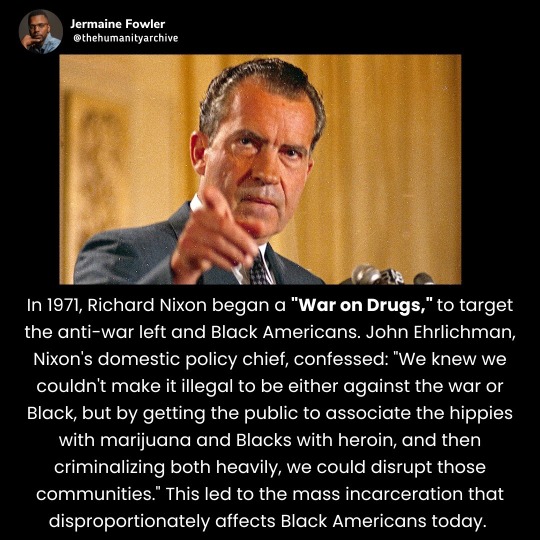
#richard nixon#war on drugs#john ehrlichman#mass incarceration#racial discrimination#black americans#criminalization#anti-war movement#drug policy
436 notes
·
View notes
Text

#cute cats#kitty cat#caturday#cats#cat#catholic#cat memes#black cats#silly cats#stolen memes#memes#lol memes#smoking#don’t do drugs kids#girls who smoke weed#sexy smoker#haha#kittyposting#cute kitty#i'm deranged#cats of tumblr#war on drugs#dont look at me#me irl#funny cats#sillyposting#so silly#silly little guy#silly#stairs
157 notes
·
View notes
Text
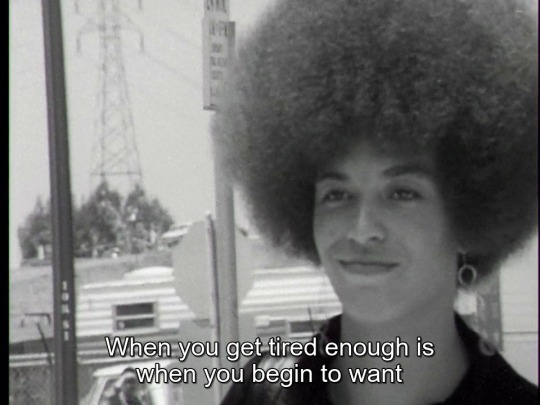
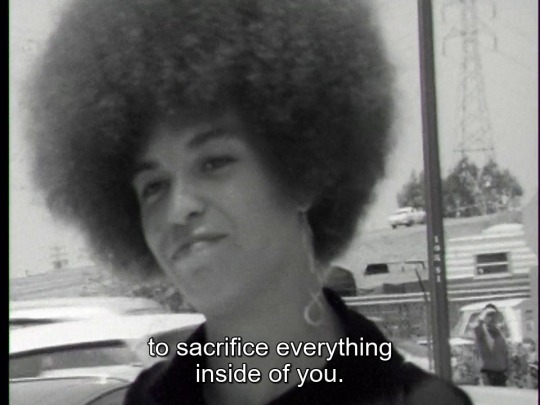
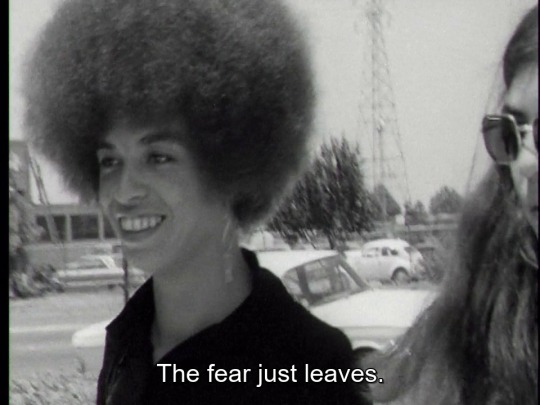
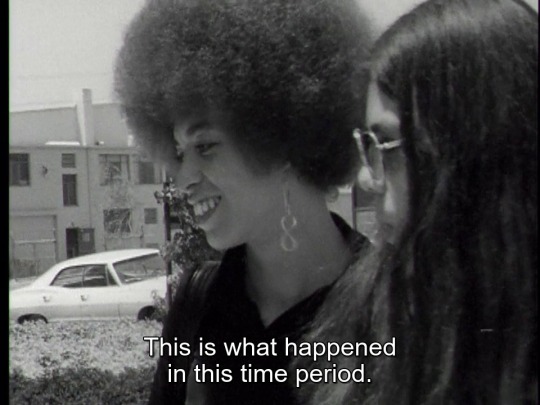
The Black Power Mixtape 1967–1975 (Göran Olsson, 2011)
#XX century#documentary#Göran Olsson#American society#The Black Power Mixtape 1967–1975#Black Liberation Movement#Stokely Carmichael#Martin Luther King Jr.#Eldridge Cleaver#Bobby Seale#Huey P. Newton#Emile de Antonio#Angela Davis#Olof Palme#Vietnam war#Black Panther Party#COINTELPRO#War on Drugs#Louis Farrakhan#Richard Nixon#Erykah Badu#Malcolm X#Harry Belafonte#Harlem#Oakland#Brooklyn#History#Civil Rights Movement#Self-determination#Sweden
269 notes
·
View notes
Text
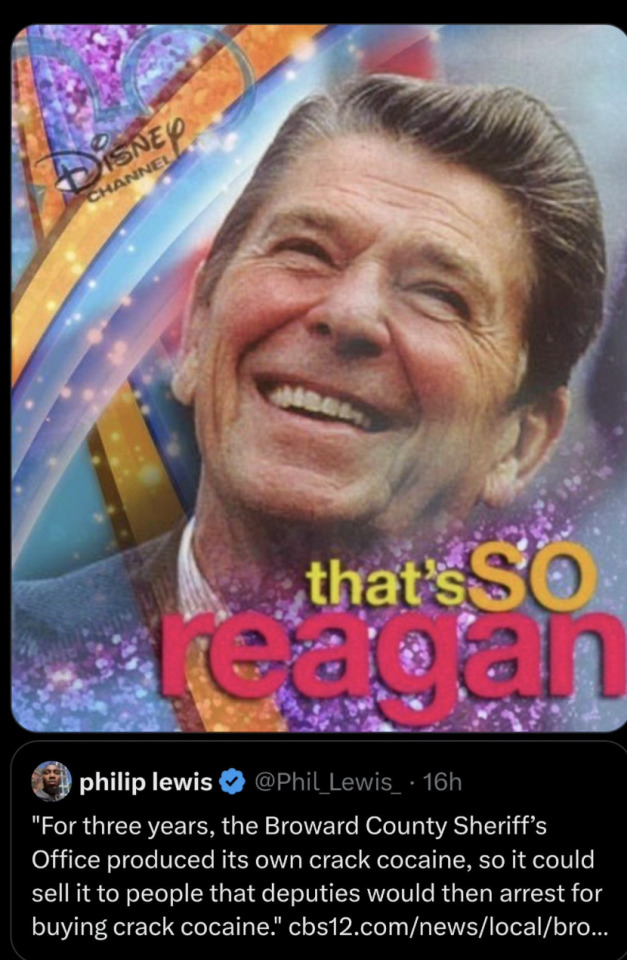
#ronald reagan#president reagan#broward county#war on drugs#crack cocaine#all cops are bad#law enforcement#justice system#fuck conservatives
144 notes
·
View notes
Link
Michelle Tandler – a former venture capitalist and wealthy “anti-San Francisco influencer“ – publicly bemoaned the lack of vigilante groups in the Bay area as she mused about whether or not fentanyl sellers should be lynched. As a researcher who studies drug prohibition, I responded by pointing out that not only is this kind of bloodthirsty rhetoric abhorrent, but drug sellers are, for the most part, workers entrapped in a violent system of marginalization, trying to survive where they have been denied functional access (often through systemic racism) to the licit job market. I pointed out, as my colleagues and I often do, that prohibition is in fact a root cause of most of the harm and chaos stemming from the drug trade. Legalization and regulation would save many lives. Even Twitter owner Elon Musk weighed in on this contentious discussion, surprising many with his stance in favour of the legalization of fentanyl. Despite this, I received dozens of threats and harassing messages for stating a position backed up by evidence.
[...]
Prohibition isn’t fighting the fentanyl crisis – it helped create it in the first place. The more the police crack down – while little is done to address the root question of why so many people want painkillers – the more they push it underground. Drug busts incentivize the flooding of the market with more compact, stronger drugs. More potent drugs are easier to transport and hide, but they’re also more dangerous as they’re difficult to properly dose. It happens every time prohibition is implemented, from the banning of alcohol in the U.S. in the 1920s and 30s, which had the unintended consequence of displacing beer and wine with the consumption of harder liquors, all the way up to the present day, where fentanyl has largely replaced heroin – which replaced morphine, which replaced opium (which was made illegal in Canada in 1908).
Despite countless aggressive attempts, no amount of surveillance or state violence has been able to stamp out drugs, which are available even in prisons, the most heavily guarded places on Earth. This is not to say we should give up the fight to keep people safe from overdoses. Quite the opposite. It means we need to let go of old, punitive, ineffective methods and start trying approaches that actually make practical sense. We have to respect the dignity of our fellow human beings who are struggling and in pain.
2K notes
·
View notes
Text




401 notes
·
View notes
Text
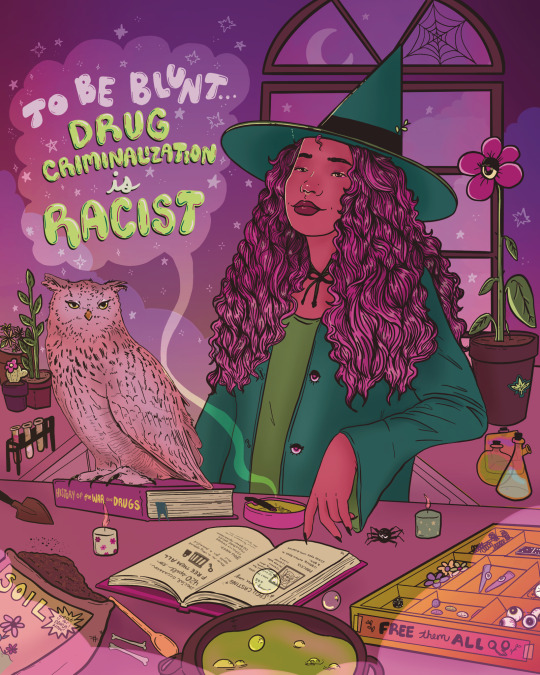
🖤 Our current drug laws are unjust and nonsensical – and disproportionately harm Black and brown communities. 🕷️🕸️🖤
Digital illustration of a young witch with brown skin and pink hair wearing a green cape and hat. Next to her is an owl sitting on a book along with an open spell book. There is a variety of objects scattered on the table in front of her including a cauldron, a bag of soil and candles. Text reads, ‘to be blunt, drug criminalization is racist.’
#art#feminism#feminist#illustration#420#drugs cw#drug reform#harm reduction#free them all#prison abolition#witch#Halloween#owl#animal#spells#war on drugs
893 notes
·
View notes
Text
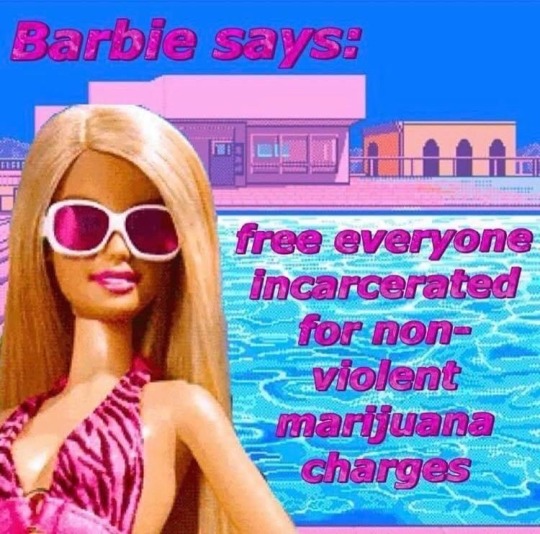
#criminal justice#criminal Justice system#cancel state#politics#justice#marijuana#war on drugs#race#USA#memes
507 notes
·
View notes
Text
Trump & Ross
youtube
If Trump does free Ross, it's only for good PR. He had first four years and he did nothing but sat on his fat ass. Republicans and “Libertarian” parties would sign their souls away for scraps.
#blackwolfmanx4#ancap#libertarian#larken rose#conservatives are morally bankrupt#democracy is not freedom#democracy is a false god#voting is slavery#voting is fake and gay#voting doesn't help#voting is not a right#voting is a scam#ross ulbricht#war on drugs#statism#authoritarianism#right wing statists#right wing idiots#abolish the government#abolish the state#end the fed#true punks hate the government#Youtube
19 notes
·
View notes
Text
If you're willing to spend taxpayer money to jail someone for stealing food but you're not willing to spend taxpayer money to give them food...
If you're willing to spend taxpayer money to jail someone for loitering or trespassing but you're not willing to spend taxpayer money to house them...
If you're willing to spend taxpayer money to jail someone for using drugs but you're not willing to spend taxpayer money to make their life enjoyable so they don't feel the need to use drugs to escape...
then you don't actually care about saving taxpayer money or keeping society safe. You just like hurting people.
238 notes
·
View notes